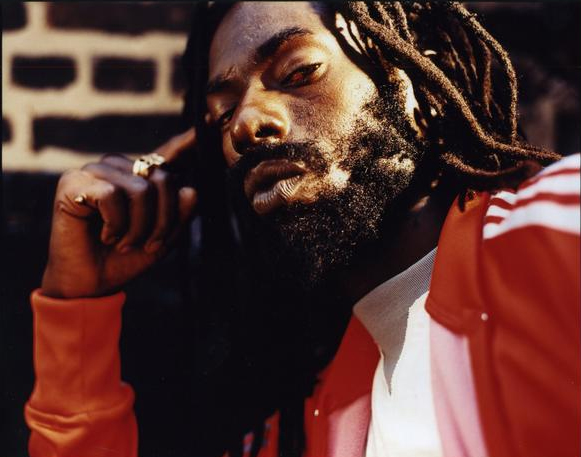Buju Banton Thanks Tearful Fans As His Attorneys Plan Appeal

Just a week after celebrating his Grammy win for Best Reggae Album, Buju Banton was convicted today by a 12-person jury in a Federal Court in Tampa, Florida. After deliberating last Friday and again today for a total of eleven hours, the jurors found Buju—born Mark Myrie—guilty of conspiracy to possess five or more kilos of cocaine, of using a telephone to facilitate drug-trafficking, and of possession of a firearm in furtherance of a drug dealing offense. Buju was found not guilty of possession with intent to distribute cocaine—and in fact, he never did possess the drugs in question. But then again, he didn’t possess a gun either. The artist has maintained his innocence from day one, and his defense attorneys have argued persuasively that he was targeted and entrapped by federal agents. Many reggae artists have described the case as part of an ongoing war against the music. In a post-Grammy statement, Buju Banton’s management called the charges against the artist “outlandish.”
Showing no emotion after the verdict was read, Buju embraced his lead defense attorney David Markus, then blew kisses to his supporters, many of whom left the courtroom in tears. This was Buju’s second trial on drug-related charges stemming from his arrest in December 2009. The first time around, jurors were unable to reach a unanimous verdict and the judge declared a mistrial.
“We are all extremely disappointed and emotional,” Markus told the AP. “The only person who seems to be okay is Buju. He told us he was happy that he fought, knowing he was innocent.” Markus also shared a statement from his client with Jamaica Observer reporter Paul Henry, who has been covering the case since last year: “Our life and our destiny are sometimes pre-destined,” Buju said. “No matter where this journey takes me, remember I fought the good fight. It was a great man that said my head is bloody but still unbowed I love you all thank you for your support.”
Sentencing has not yet been scheduled, but the 37-year-old reggae star could face 20 years in federal prison. Markus plans to appeal the conviction, which was based solely upon phone calls and video footage recorded by a paid DEA informant named Alexander Johnson. A convicted Colombian drug dealer, Johnson was arrested bringing hundreds kilos of cocaine into the U.S. in 1994. But instead of going to prison he went to work for the DEA, using hidden cameras and tape recorders to build cases for the Feds, and earning a handsome living for his work.
Johnson testified that he met Buju Banton in June 2009 when they just happened to be seated next to each other in first class on a flight from Spain to the U.S following Buju’s summer tour. The confidential informant pursued the reggae star for months, and although Buju avoided his calls, Johnson did record Buju making various unsubstantiated claims on tape. Assistant U.S. Attorney James Preston argued that Buju Banton portrayed himself as a broker of drug deals in several conversations with the confidential informant, who was paid $50,000 for building a case against the reggae superstar. Markus said his client was a “big talker” but hardly a drug dealer.
The informant eventually lured Buju to a Sarasota warehouse—allegedly to look at a boat. But when Buju and two friends arrived, undercover agents showed him and his associates bricks of cocaine. The artist was caught on video tasting the cocaine—an act Buju’s attorney called “the worst mistake of his life”—but he was not present when his friends went back to the warehouse with money to buy drugs and were taken into custody and subsequently pleaded guilty. Buju was arrested the following day at his Florida home. Prosecutors presented no evidence suggesting that Buju put any money into the drug deal, or stood to benefit from it in any way.
“This was complete entrapment,” said one Buju supporter, who attended all four days of his second trial, and noted that there were three African-American women but no Black males among the jurors. “I can’t believe those jurors were in the same courtroom as I was.”



[…] Read the full original article… […]